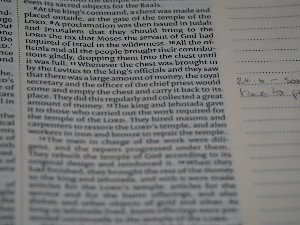Mirah Azizah, Ria Riski Marsuki, Hasria Riski
Implementation of the Three-Language Pocket Dictionary (Indonesian, English, and Mandarin) for Students of the Tourism Business Program at Makassar Tourism Polytechnic
Introduction
Implementation of the three-language pocket dictionary (indonesian, english, and mandarin) for students of the tourism business program at makassar tourism polytechnic. Discover how a three-language (Indonesian, English, Mandarin) pocket dictionary at Makassar Tourism Polytechnic significantly improved tourism business students' vocabulary mastery for communication.
Abstract
This study discusses the role of language in everyday communication and the development ofTourism Polytechnic as educational institutions that also incorporate the teaching of variousforeign languages. The research was conducted at the Makassar Tourism Polytechnic. Thisinstitution places significant emphasis on the study of Tourism, especially hospitality andlanguages, including Mandarin and English.The goal of implementing this two-language dictionary is to help respondents quickly expand their vocabulary for use in tourism communication, according to their preferred language fields. This study uses a quantitative method with a comparative design. The instruments used were observation, pretest, and posttest, conducted with 50 students.The results showed a significant improvement in the mastery of foreign language vocabulary,particularly in Mandarin and English. A SWOT analysis was then conducted on the twolanguage pocket dictionary, highlighting its strengths, weaknesses, opportunities, and threats.The article also presents comparative graphs of pretest, middle test, and posttest results for English, and Mandarin.The findings suggest that the implementation of the two-language dictionary at MakassarTourism Polytechnic successfully improved the foreign language vocabulary mastery of students.
Review
This paper presents a quantitative study on the implementation of a three-language pocket dictionary (Indonesian, English, and Mandarin) at Makassar Tourism Polytechnic, aiming to enhance the foreign language vocabulary of students in the Tourism Business Program. The study addresses a pertinent need within tourism education, where multilingual proficiency is increasingly crucial for effective communication. Employing a comparative design with pre- and post-tests on 50 students, the research suggests a significant improvement in foreign language vocabulary mastery, particularly in English and Mandarin, attributed to the dictionary's use. The inclusion of a SWOT analysis on the dictionary's utility further enriches the practical implications of its implementation. The methodology adopted, involving pretest-posttest design and observation, provides a solid basis for evaluating the dictionary's impact on vocabulary acquisition. The clear articulation of the study's objective to aid students in expanding their vocabulary for tourism communication is commendable. While the abstract consistently refers to a "two-language dictionary" in the body text after introducing a "three-language" dictionary in the title, clarification on this discrepancy would strengthen the presentation. The mention of comparative graphs for pretest, middle test, and posttest results for English and Mandarin indicates a thorough approach to data presentation, which would be valuable for readers to assess the extent of the observed improvements. Overall, the findings underscore the potential of targeted language learning tools, like the dictionary described, in specialized educational contexts such as tourism. The study offers valuable insights for other tourism-focused institutions considering similar interventions to boost student linguistic competence. Future iterations of this research could delve deeper into the specific design features of the dictionary that contributed most to its success, or explore long-term retention of vocabulary. The article's contribution lies in demonstrating a practical and effective method for language skill enhancement, directly aligning with the demands of the global tourism industry.
Full Text
You need to be logged in to view the full text and Download file of this article - Implementation of the Three-Language Pocket Dictionary (Indonesian, English, and Mandarin) for Students of the Tourism Business Program at Makassar Tourism Polytechnic from Longda Xiaokan: Journal of Mandarin Learning and Teaching .
Login to View Full Text And DownloadComments
You need to be logged in to post a comment.
Top Blogs by Rating
Micro-Movements: Your Daily Do...
By Sciaria
The Convenience Trap: Balancin...
By Sciaria
The Algorithm: Your Next Human...
By Sciaria
Favorite Blog
Are Human Rights a Luxury? Unp...
By Sciaria
The Microscopic Masterminds: D...
By Sciaria
Beyond the Stereotype: Unpacki...
By Sciaria
Related Research
Preparation of cadmium nanoparticles by laser ablation method in water at different energies and their biological application
Operações de conjuntos na 1ª série do ensino médio profissionalizante através da resolução de problemas
Towards an edupreneurial indonesian higher education
Share
Notice Board
- IMPLEMENTASI PENGOLAHAN CITRA UNTUK KLASIFIKASI JENIS BUNGA MATAHARI, MAWAR, DAN TULIP MENGGUNAKAN ALGORITMA K-MEANS CLUSTERING
- PENGEMBANGAN MODUL PENILAIAN USULAN HIBAH INTERNAL PADA SISTEM INFORMASI PENELITIAN DAN PENGABDIAN KEPADA MASYARAKAT POLITEKNIK NEGERI SAMBAS
- PETANI MILENIAL DAN KONSERVASI BUDAYA KERJA BERTANI DI DALAM KELUARGA PETANI DI DESA MLANDI, GARUNG, WONOSOBO





